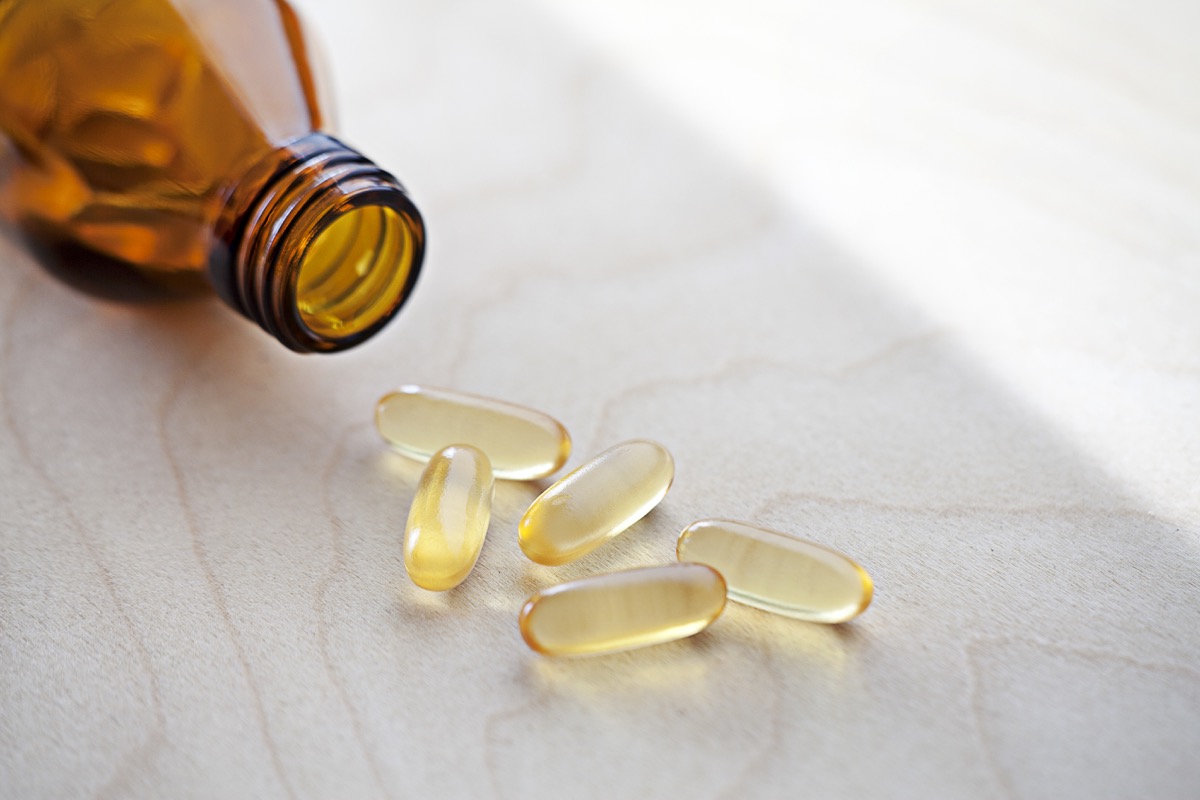Vitamin D helps with a whole host of functions in your body. It’s involved in calcium and phosphorus absorption, immune function, and in protecting your bone, muscle, and heart health. “Getting a sufficient amount of vitamin D is important for normal growth and development of bones and teeth, as well as improved resistance against certain diseases,” Healthline notes, adding that it reduces depression and your risk of heart disease, while also potentially helping you lose weight.ae0fcc31ae342fd3a1346ebb1f342fcb The Endocrine Society and The Institute of Medicine says that, for adults, the recommended daily allowance for vitamin D is 600 IU, with the max being 4,000 IU, Johns Hopkins Medicine reports. And for more numbers to know for the sake of your health, If You Can’t Do This in 90 Seconds, Your Heart Is in Danger, Study Says. For dietary and environmental reasons, large numbers of people are lacking in vitamin D—around 1 billion people worldwide, in fact, according to a 2014 report in the journal Age and Aging. Stateside, 42 percent of Americans are vitamin D deficient, Ohio’s Mercy Medical Center says. And most people are often unaware of their deficiency until they start experiencing health issues as a result, ranging from depression to fatigue to hair loss to muscle pain. And for more health news delivered right to your inbox, sign up for our daily newsletter. When you’re exposed to the sun, or certain foods (oily fish, red meat, liver, egg yolks, certain fortified breakfast cereals), you consume vitamin D naturally (D3 comes from sunlight, D2 from food), Healthline reports. There’s no risk of excessive vitamin D in these cases, as food contains relatively low levels of the vitamin, while on sunny days your body naturally regulates how much of it is produced. However, when you consume vitamin D synthetically in the form of supplements, that’s not the case, and it’s possible for a surplus to build up in your system. And for more on the dangers of pills you may have at home, check out If You Take This Medication, the FDA Says Call Your Doctor Now. Excess vitamin D can result in vitamin D toxicity, known as hypervitaminosis D, says Katherine Zeratsky, RD, of the Mayo Clinic. “Taking 60,000 international units (IU) a day of vitamin D for several months has been shown to cause toxicity,” she explains. While a rare condition, it is caused by ingesting large amounts of supplemental vitamin D, which causes a build-up of calcium in your blood, known as hypercalcemia. This condition can cause nausea and vomiting, weakness, and frequent urination before progressing to bone pain and kidney problems, including the formation of calcium stones. When these problems manifest, medical intervention will be necessary. “Treatment includes stopping vitamin D intake and restricting dietary calcium. Your doctor might also prescribe intravenous fluids and medications, such as corticosteroids or bisphosphonates,” Zeratsky warns. One case study cited in the New England Journal of Medicine reported on a 58-year-old woman who was hospitalized with fatigue, forgetfulness, nausea, vomiting, slurred speech, and other symptoms, having been ingesting 47 times the safe daily upper limit of vitamin D via a supplement. While this is an extreme case, it’s a useful warning that even good things need to be taken in moderation and that just because something is good for you, more is not always better. And for more on supplements you should know, find out why This Vitamin Won’t Protect You From Severe COVID, New Study Finds.



